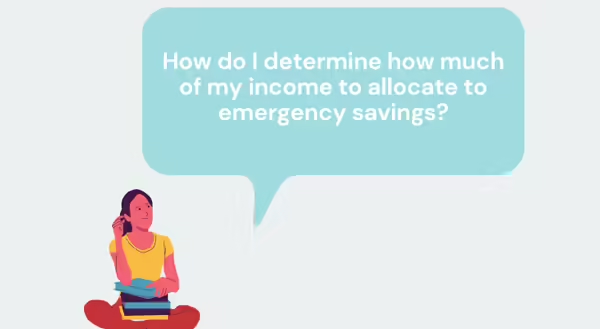
Approaching this question first requires you to determine your critical expenses. Everyone’s critical expenses are subject to variability, but some broad categories would include housing, food, health care, utilities, transportation, and any debt you may have. You should not include anything you’d cut from your budget in the event of job loss or major catastrophe. For example, entertainment, dining out, nonessential shopping, vacations, and saving for a second home are not expenses that are critical to your welfare in the short-run.
Once you have determined the total cost of your critical expenses, experts believe you should have enough money in your emergency fund to cover at least 3 to 6 months’ worth of living expenses. In the first few months of your career, the percentage of your income allocated to savings will be high because you will be building your initial emergency fund. Furthermore, it is important to reevaluate your list of critical expenses at least once a year, or after new major life events such as buying a house or having children as your situation may change.
3 to 6 months is a good rule of thumb but sometimes it’s not enough. For instance, during a recession where unemployment rates are higher, and the length of unemployment is often longer, you might want to think about expanding your emergency savings if you’re in a high-risk industry where layoffs are common.
Lastly, always remember something is better than nothing! If you don’t think you can save enough now, don’t panic! You can build up to it by stashing away smaller amounts on a regular basis. The important thing is that you’ve started saving something.
Written by Matt DeLeon, Financial Wellness for College Students Peer Educator, University of Illinois Extension, Fall 2017. Reviewed by Kathy Sweedler, University of Illinois Extension.